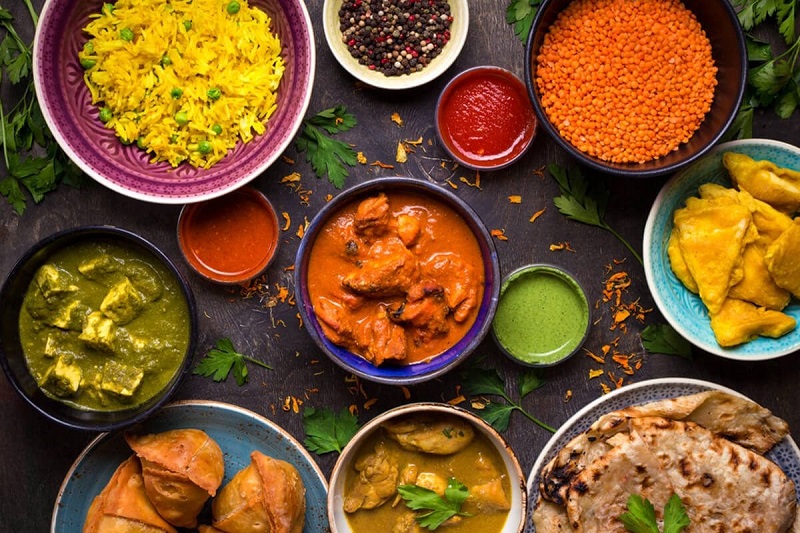Ayurvedic diet: what it is, foods and benefits
The Ayurvedic diet is a method of eating that, although it seems new to us because it has grown in popularity in recent years, actually has its origin in the traditional Ayurvedic medicine that was practiced thousands of years ago by the ancient peoples of India. His goal is to achieve inner balance through food and thus gain health and well-being. The Ayurvedic diet is not limited to a list of allowed or prohibited foods, but rather adapts the different menus to the individual needs of each person, according to their constitution and characteristics.
If you want to know what the Ayurvedic diet is, the principles on which it is based and what are the appropriate foods in each case, keep reading this article in which we also talk about the benefits of the Ayurvedic diet .
What is the Ayurvedic diet?
Ayurvedic is not exactly a diet to use, with established menus and calorie ‘count’, because it is a holistic concept of integral care of the person . Meditation, the ability to relax to combat stress or the use of medicinal herbs are part, together with one’s diet, of Ayurvedic therapies that seek personal balance in harmony with oneself and with the Universe.
The foods recommended by the Ayurvedic diet will always depend on the physical constitution and personality of each individual, which is known as dosha, although the way to eat them does follow some common guidelines in any case, which are basically:
Although there are no prohibited foods, in general, fresh foods, of vegetable origin and prepared, in addition, to simple cooking methods, predominate so that they are as natural as possible.
It is recommended to eat 3 meals a day, leaving enough time for the digestion process to be completed. In addition, the Ayurvedic diet requires that the last meal, dinner, take place at least two hours before bedtime.
Meals must be made consciously, that is, realizing the food we eat and its properties. Chewing well and slowly and always eating in a calm and relaxed environment are also important guidelines for making food work in a way that is beneficial to health.
Quantities are also important in the Ayurvedic diet, which advices eating until you are satisfied and not eating excessive amounts, that is, not continuing to eat until you are full.
The diet is always accompanied by healthy habits, such as the necessary rest and moderate exercise, and only limits foods that, in excess, could be harmful, such as alcoholic beverages or processed foods high in sugar and saturated fat.
Ayurvedic recipes are based on the combination of the different flavors that must be present in each dish: sweet, salty, acid…
Body types or doshas in the Ayurvedic diet
Knowing what the physical and mental characteristics of each person are is essential for the Ayurvedic diet to fulfill its objective of promoting health through food. Traditional Ayurvedic medicine establishes three body types or doshas, taking into account the elements that predominate in each of them: water, earth, fire, air, and ether, elements that are also part of the Universe itself.
- Vata: they are usually thin, agile people, especially sensitive to low temperatures, to cold. They are energetic, creative, dynamic, and moody. According to Ayurvedic medicine, when they present imbalances they can be affected by episodes of stress, anxiety, and poor digestion.
- Pitta: robust constitution and good appetite are intelligent, enterprising, and competitive people. When unbalanced, they can present metabolic alterations and problems related to skin pathologies such as eczema or psoriasis.
- Kapha: they are physically strong and resistant people, who are characterized by being patient and affectionate. They are the individuals who present a greater tendency to gain weight.
Foods in the Ayurvedic diet
Food is one of the pillars in the Ayurvedic concept of life itself. The intake of those foods that benefit us the most contributes to balance, health, and well-being with oneself and with the environment. Although the diet will always depend on the dosha, among the predominant foods in the Ayurvedic diet are:
- Seasonal fruits and vegetables.
- Spices and medicinal plants.
- Whole grains.
- Legumes and sprouted grains.
- The milk.
- Meats (according to dosha).
- Nuts and seeds.
- Infusions, especially all kinds of teas.
The most recommended foods according to each dosha are:
- Vata: Vata people should eat foods rich in nutrients and also healthy fats (in moderation). In addition, its special sensitivity to cold advises avoiding cold foods and opting for warm and well-seasoned ones, with spices such as thyme, coriander or ginger root. Dairy products, poultry, fish, sweet and ripe fruits, such as bananas or peaches. And cereals, such as oats and rice, are some of the most recommended foods.
- Pita: vegetables are the foods that most help maintain the health and balance of pita people. Leafy vegetables, asparagus, broccoli, pumpkin… should be the basis of your Ayurvedic diet, which should be completed with legumes, cereals, such as barley or wheat, and dairy products.
- Kapha: avoiding fried foods and reducing salt is one of the conditions of the Ayurvedic diet for Kapha people. Eggplants, broccoli, cauliflower, potatoes (baked or boiled), and legumes, especially lentils, are some of the most recommended foods. Instead, milk and cold foods, in general, should be restricted.
Benefits of the Ayurvedic diet
Providing the body with the foods that best suit it and those that provide it with energy. And nutrients it needs to maintain health and well-being is the goal of an Ayurvedic diet. These are the benefits that the Ayurvedic diet can provide:
- It is a diet that is mainly based on fresh and seasonal plant foods, which provide multiple nutrients and minimal amounts of fat .
- Helps maintain a healthy weight without resorting to restrictive diets or ‘miracle’ diets.
- The presence of foods rich in fiber favors proper intestinal transit.
- It promotes well-being, reduces fatigue, and strengthens the immune system itself and it is considered that it can also help solve problems of stress, anxiety, or insomnia.





